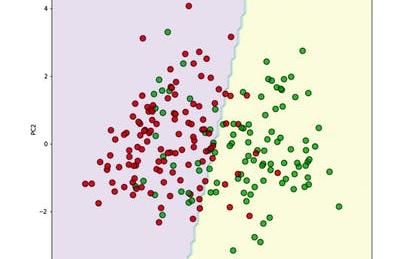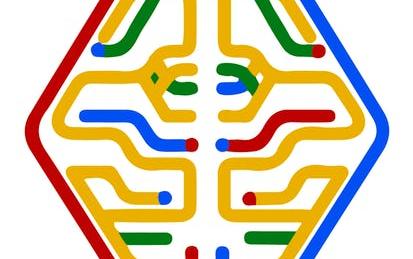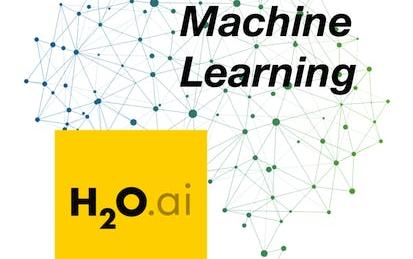

دوراتنا

Introduction to Linear Models and Matrix Algebra
Learn to use R programming to apply linear models to analyze data in life sciences.
-
Course by

-
 التعلم الذاتي
التعلم الذاتي
-
 12
12
-
 الإنجليزية
الإنجليزية

Advanced Bayesian Statistics Using R
Now that you know the basics of Bayesian inference, dive deeper to explore its richness and flexibility more fully. Let’s take a closer look at modeling latent variables, Bayesian model averaging, generalised linear models, and MCMC methods
-
Course by

-
 Self Paced
Self Paced
-
 21
21
-
 الإنجليزية
الإنجليزية

Advanced Statistics for Data Science
Fundamental concepts in probability, statistics and linear models are primary building blocks for data science work. Learners aspiring to become biostatisticians and data scientists will benefit from the foundational knowledge being offered in this specialization. It will enable the learner to understand the behind-the-scenes mechanism of key modeling tools in data science, like least squares and linear regression. This specialization starts with Mathematical Statistics bootcamps, specifically concepts and methods used in biostatistics applications.
-
Course by

-
 Self Paced
Self Paced
-
 الإنجليزية
الإنجليزية

Bayesian Statistics
This Specialization is intended for all learners seeking to develop proficiency in statistics, Bayesian statistics, Bayesian inference, R programming, and much more. Through four complete courses (From Concept to Data Analysis; Techniques and Models; Mixture Models; Time Series Analysis) and a culminating project, you will cover Bayesian methods — such as conjugate models, MCMC, mixture models, and dynamic linear modeling — which will provide you with the skills necessary to perform analysis, engage in forecasting, and create statistical models using real-world data.
-
Course by

-
 Self Paced
Self Paced
-
 الإنجليزية
الإنجليزية

AI Workflow: Machine Learning, Visual Recognition and NLP
This is the fourth course in the IBM AI Enterprise Workflow Certification specialization. You are STRONGLY encouraged to complete these courses in order as they are not individual independent courses, but part of a workflow where each course builds on the previous ones. Course 4 covers the next stage of the workflow, setting up models and their associated data pipelines for a hypothetical streaming media company. The first topic covers the complex topic of evaluation metrics, where you will learn best practices for a number of different metrics including regressi
-
Course by

-
 Self Paced
Self Paced
-
 14 ساعات
14 ساعات
-
 الإنجليزية
الإنجليزية

Generalized Linear Models and Nonparametric Regression
In the final course of the statistical modeling for data science program, learners will study a broad set of more advanced statistical modeling tools. Such tools will include generalized linear models (GLMs), which will provide an introduction to classification (through logistic regression); nonparametric modeling, including kernel estimators, smoothing splines; and semi-parametric generalized additive models (GAMs). Emphasis will be placed on a firm conceptual understanding of these tools.
-
Course by

-
 Self Paced
Self Paced
-
 42 ساعات
42 ساعات
-
 الإنجليزية
الإنجليزية

Principles of fMRI 1
Functional Magnetic Resonance Imaging (fMRI) is the most widely used technique for investigating the living, functioning human brain as people perform tasks and experience mental states. It is a convergence point for multidisciplinary work from many disciplines. Psychologists, statisticians, physicists, computer scientists, neuroscientists, medical researchers, behavioral scientists, engineers, public health researchers, biologists, and others are coming together to advance our understanding of the human mind and brain.
-
Course by

-
 Self Paced
Self Paced
-
 8 ساعات
8 ساعات
-
 الإنجليزية
الإنجليزية

Resampling, Selection and Splines
"Statistical Learning for Data Science" is an advanced course designed to equip working professionals with the knowledge and skills necessary to excel in the field of data science. Through comprehensive instruction on key topics such as shrink methods, parametric regression analysis, generalized linear models, and general additive models, students will learn how to apply resampling methods to gain additional information about fitted models, optimize fitting procedures to improve prediction accuracy and interpretability, and identify the benefits and approach of non-linear models.
-
Course by

-
 Self Paced
Self Paced
-
 16 ساعات
16 ساعات
-
 الإنجليزية
الإنجليزية

Advanced Linear Models for Data Science 1: Least Squares
Welcome to the Advanced Linear Models for Data Science Class 1: Least Squares. This class is an introduction to least squares from a linear algebraic and mathematical perspective.
-
Course by

-
 Self Paced
Self Paced
-
 9 ساعات
9 ساعات
-
 الإنجليزية
الإنجليزية

Advanced Linear Models for Data Science 2: Statistical Linear Models
Welcome to the Advanced Linear Models for Data Science Class 2: Statistical Linear Models. This class is an introduction to least squares from a linear algebraic and mathematical perspective.
-
Course by

-
 6 ساعات
6 ساعات
-
 الإنجليزية
الإنجليزية

Support Vector Machines with scikit-learn
In this project, you will learn the functioning and intuition behind a powerful class of supervised linear models known as support vector machines (SVMs). By the end of this project, you will be able to apply SVMs using scikit-learn and Python to your own classification tasks, including building a simple facial recognition model.
-
Course by

-
 Self Paced
Self Paced
-
 3 ساعات
3 ساعات
-
 الإنجليزية
الإنجليزية

Computer Vision Fundamentals with Google Cloud
This course describes different types of computer vision use cases and then highlights different machine learning strategies for solving these use cases. The strategies vary from experimenting with pre-built ML models through pre-built ML APIs and AutoML Vision to building custom image classifiers using linear models, deep neural network (DNN) models or convolutional neural network (CNN) models. The course shows how to improve a model's accuracy with augmentation, feature extraction, and fine-tuning hyperparameters while trying to avoid overfitting the data.
-
Course by

-
 Self Paced
Self Paced
-
 19 ساعات
19 ساعات
-
 الإنجليزية
الإنجليزية

Regression Models
Linear models, as their name implies, relates an outcome to a set of predictors of interest using linear assumptions. Regression models, a subset of linear models, are the most important statistical analysis tool in a data scientist’s toolkit. This course covers regression analysis, least squares and inference using regression models. Special cases of the regression model, ANOVA and ANCOVA will be covered as well. Analysis of residuals and variability will be investigated.
-
Course by

-
 Self Paced
Self Paced
-
 54 ساعات
54 ساعات
-
 الإنجليزية
الإنجليزية

Practical Machine Learning on H2O
In this course, we will learn all the core techniques needed to make effective use of H2O. Even if you have no prior experience of machine learning, even if your math is weak, by the end of this course you will be able to make machine learning models using a variety of algorithms. We will be using linear models, random forest, GBMs and of course deep learning, as well as some unsupervised learning algorithms. You will also be able to evaluate your models and choose the best model to suit not just your data but the other business restraints you may be under.
-
Course by

-
 Self Paced
Self Paced
-
 24 ساعات
24 ساعات
-
 الإنجليزية
الإنجليزية

Fitting Statistical Models to Data with Python
In this course, we will expand our exploration of statistical inference techniques by focusing on the science and art of fitting statistical models to data. We will build on the concepts presented in the Statistical Inference course (Course 2) to emphasize the importance of connecting research questions to our data analysis methods.
-
Course by

-
 Self Paced
Self Paced
-
 15 ساعات
15 ساعات
-
 الإنجليزية
الإنجليزية



